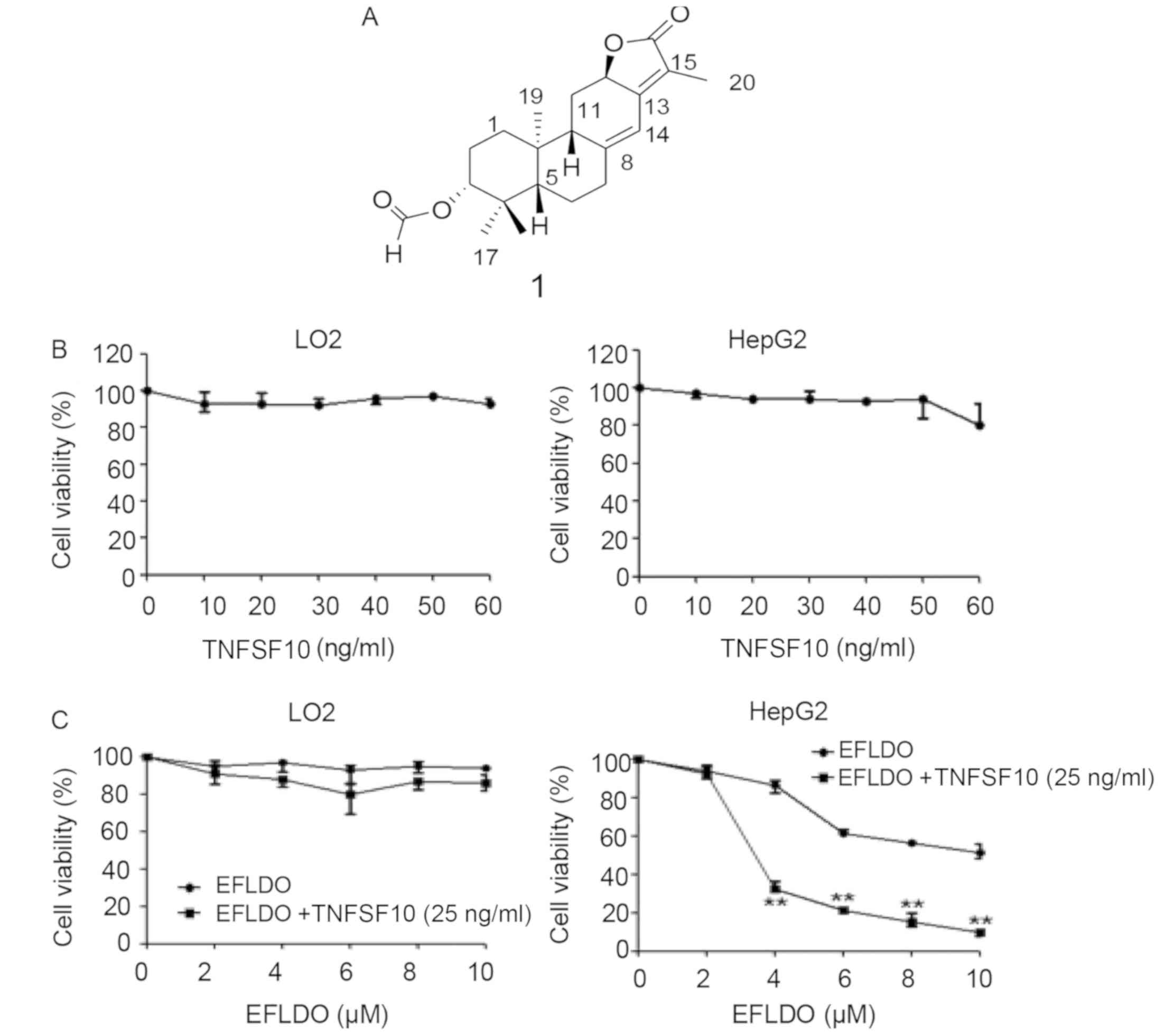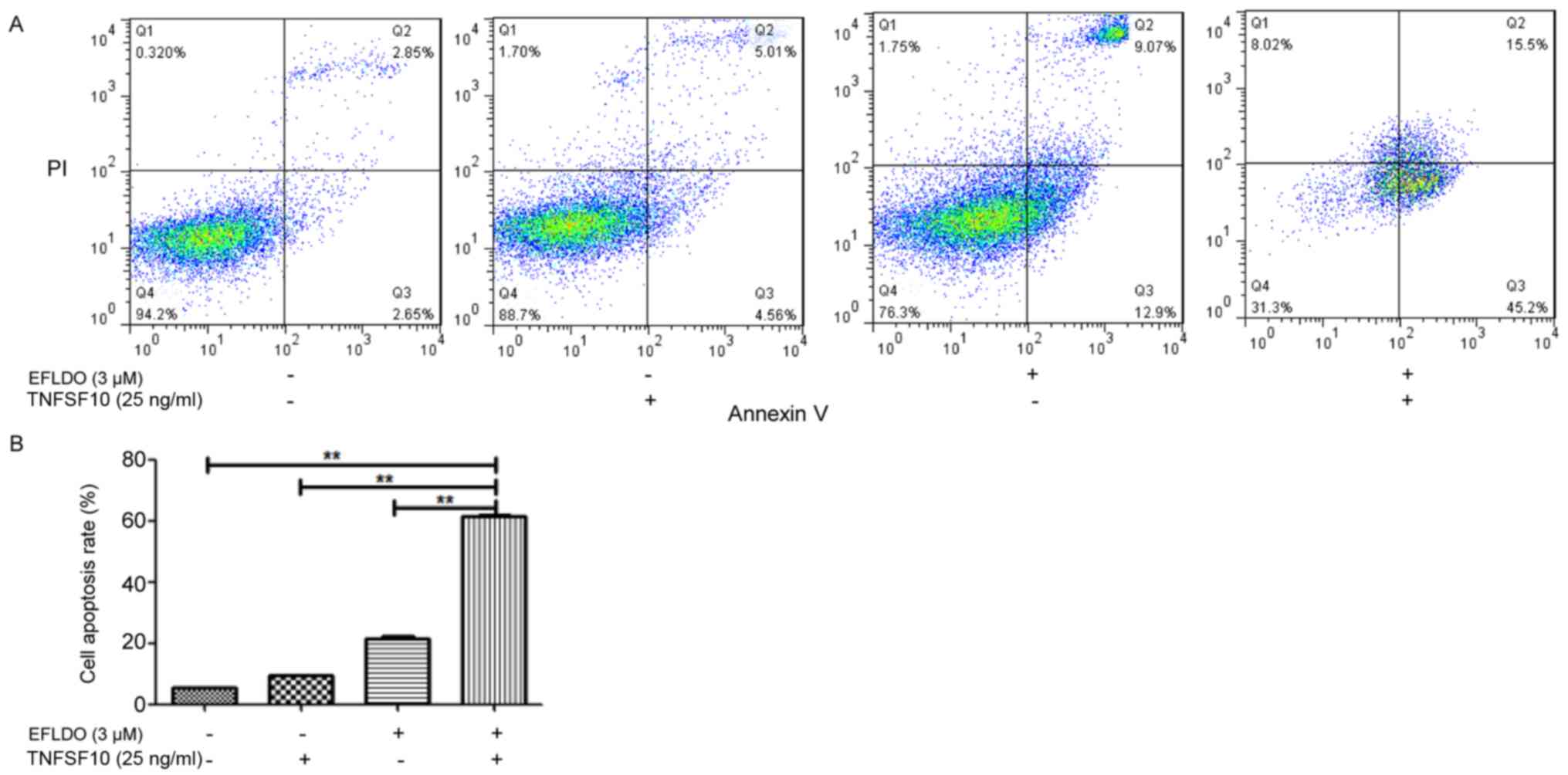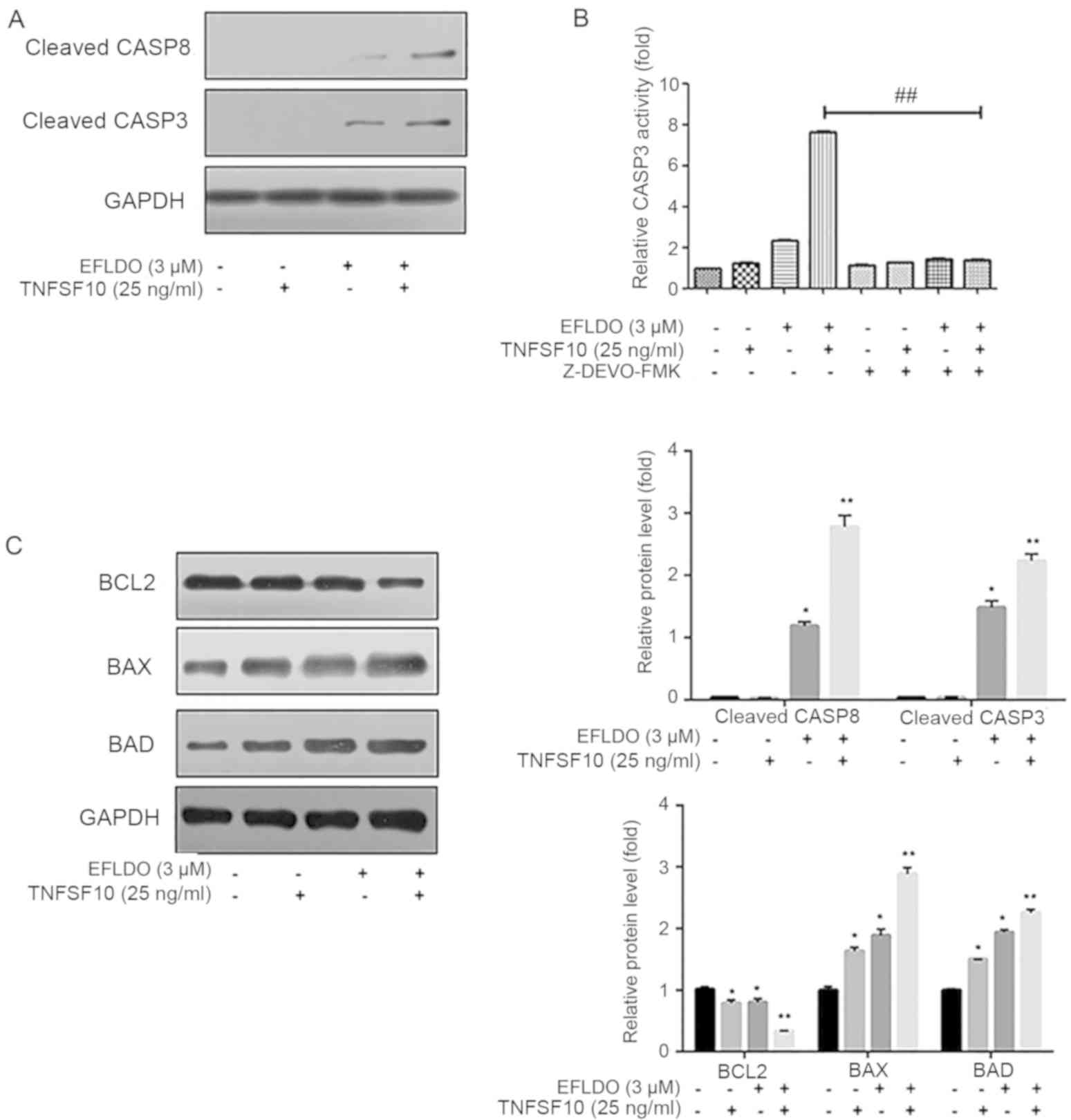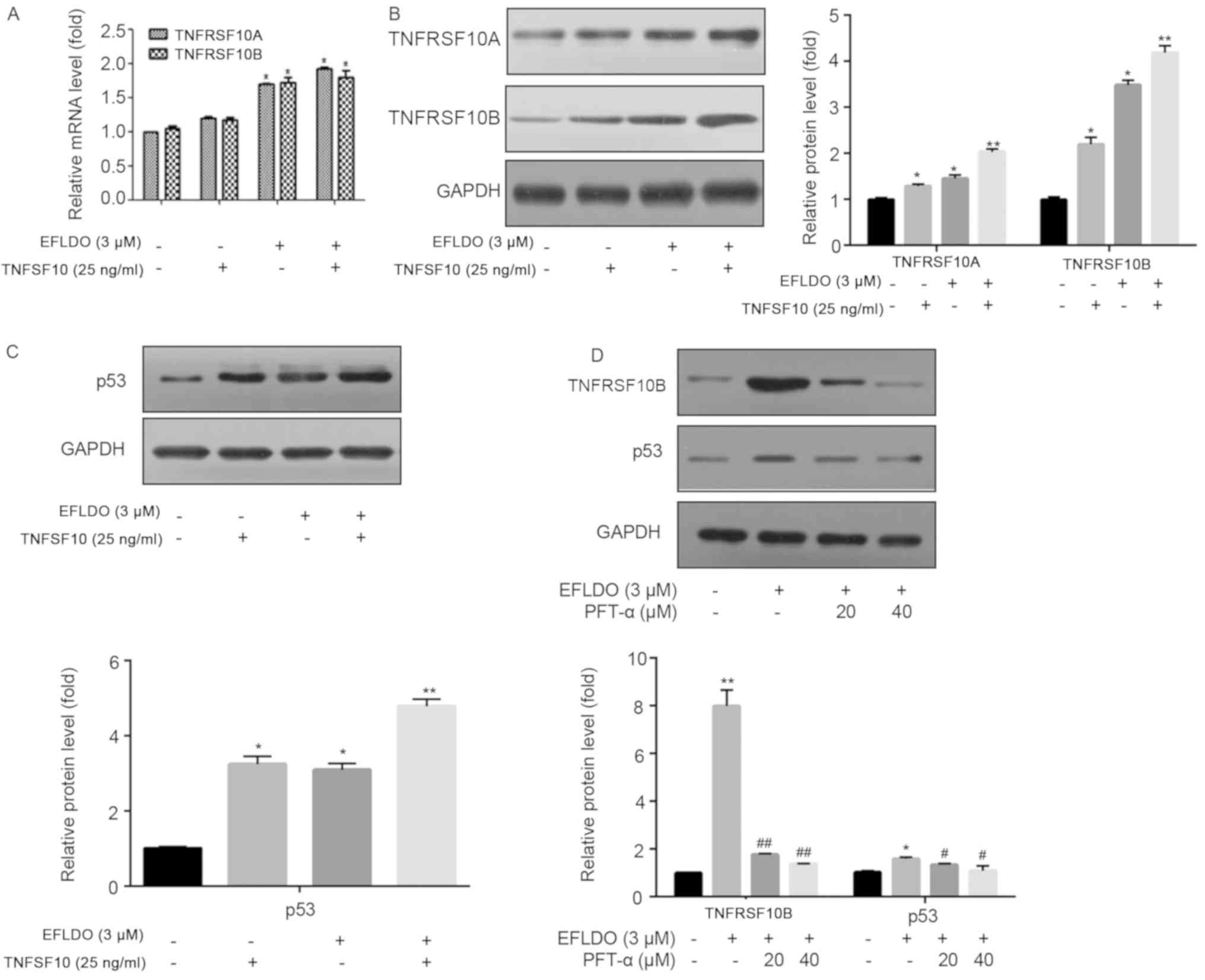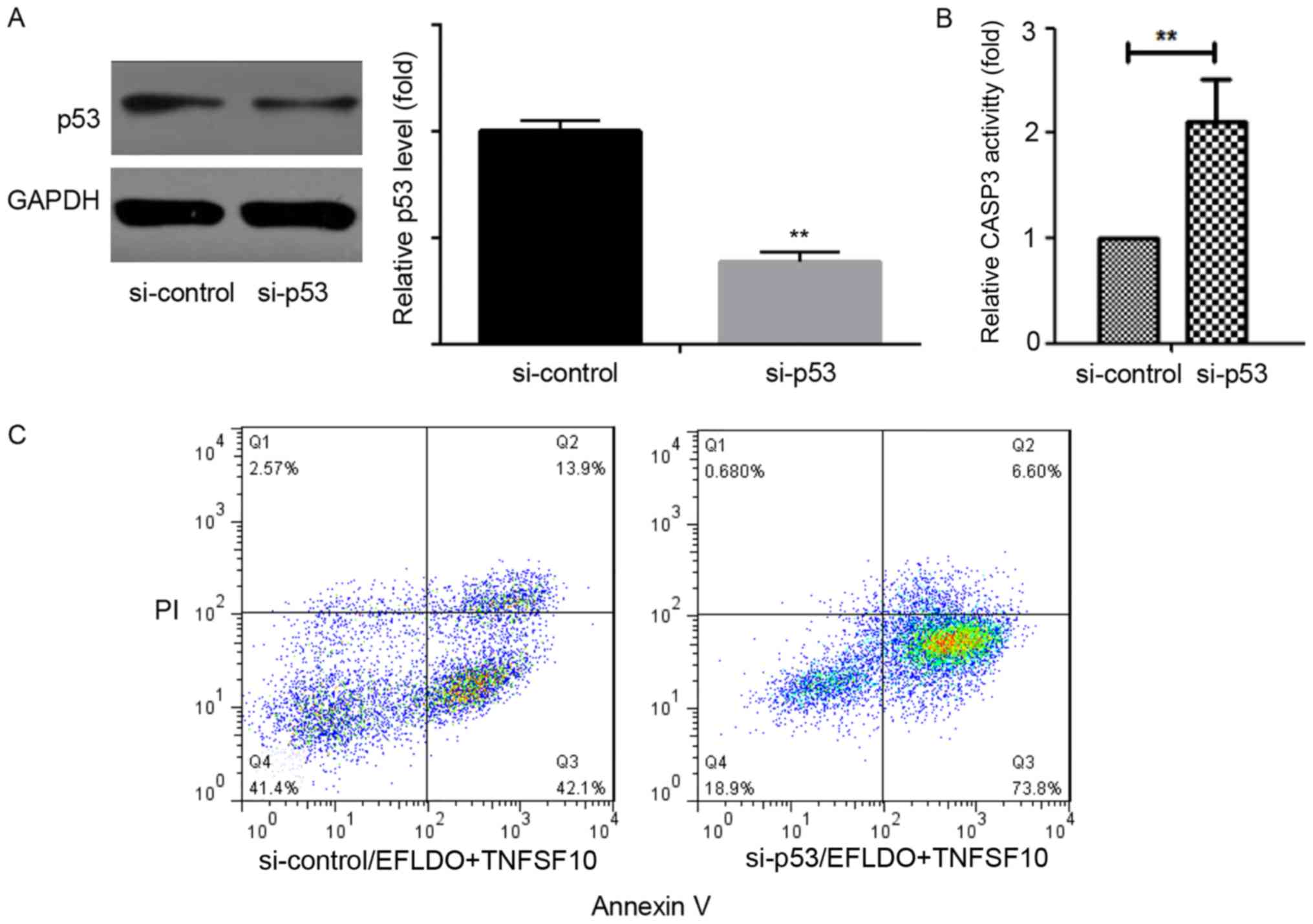|
1
|
Takada Y, Tohyama T and Watanabe J:
Biological markers of hepatocellular carcinoma for use as selection
criteria in liver transplantation. J Hepatobiliary Pancreat Sci.
22:279–286. 2015. View
Article : Google Scholar : PubMed/NCBI
|
|
2
|
Ling D, Xia H, Park W, Hackett MJ, Song C,
Na K, Hui KM and Hyeon T: pH-sensitive nanoformulated triptolide as
a targeted therapeutic strategy for hepatocellular carcinoma. ACS
Nano. 8:8027–8039. 2014. View Article : Google Scholar : PubMed/NCBI
|
|
3
|
Kassebaum NJ, Bertozzi-Villa A, Coggeshall
MS, Shackelford KA, Steiner C, Heuton KR, Gonzalez-Medina D, Barber
R, Huynh C, Dicker D, et al: Global, regional, and national levels
and causes of maternal mortality during 1990–2013: A systematic
analysis for the Global burden of disease study 2013. Lancet.
384:980–1004. 2014. View Article : Google Scholar : PubMed/NCBI
|
|
4
|
Alsaied OA, Sangwan V, Banerjee S, Krosch
TC, Chugh R, Saluja A, Vickers SM and Jensen EH: Sorafenib and
triptolide as combination therapy for hepatocellular carcinoma.
Surgery. 156:270–279. 2014. View Article : Google Scholar : PubMed/NCBI
|
|
5
|
Chen W, Zhang Y, Li Y, Zhang J, Zhang T,
Fu B, Zhang Q and Jiang N: Constitutive expression of Wnt/β-catenin
target genes promotes proliferation and invasion of liver cancer
stem cells. Mol Med Rep. 13:3466–3474. 2016. View Article : Google Scholar : PubMed/NCBI
|
|
6
|
He S, Chen Y, Chen XP, Zhang WG, Wang HP,
Zhao YZ and Wang SF: Antitumor effects of soluble TRAIL in human
hepatocellular carcinoma. J Huazhong Univ Sci Technolog Med Sci.
25:51–54. 2005. View Article : Google Scholar : PubMed/NCBI
|
|
7
|
He SQ, Rehman H, Gong MG, Zhao YZ, Huang
ZY, Li CH, Zhang WG and Chen XP: Inhibiting survivin expression
enhances TRAIL-induced tumoricidal activity in human hepatocellular
carcinoma via cell cycle arrest. Cancer Biol Ther. 6:1247–1257.
2007. View Article : Google Scholar : PubMed/NCBI
|
|
8
|
Zhang Y, Ma H, Zhang J, Liu S, Liu Y and
Zheng D: AAV-mediated TRAIL gene expression driven by hTERT
promoter suppressed human hepatocellular carcinoma growth in mice.
Life Sci. 82:1154–1161. 2008. View Article : Google Scholar : PubMed/NCBI
|
|
9
|
Zhang Y, Qu ZH, Cui M, Guo C, Zhang XM, Ma
CH and Sun WS: Combined endostatin and TRAIL gene transfer
suppresses human hepatocellular carcinoma growth and angiogenesis
in nude mice. Cancer Biol Ther. 8:466–473. 2009. View Article : Google Scholar : PubMed/NCBI
|
|
10
|
Zhang B, Shan H, Li D, Zhu KS, Jiang ZB
and Huang MS: Cisplatin sensitizes human hepatocellular carcinoma
cells, but not hepatocytes and mesenchymal stem cells, to TRAIL
within a therapeutic window partially depending on the upregulation
of DR5. Oncol Rep. 25:461–468. 2011.PubMed/NCBI
|
|
11
|
Lee JY, Jung KH, Morgan MJ, Kang YR, Lee
HS, Koo GB, Hong SS, Kwon SW and Kim YS: Sensitization of
TRAIL-induced cell death by 20(S)-ginsenoside Rg3 via CHOP-mediated
DR5 upregulation in human hepatocellular carcinoma cells. Mol
Cancer Ther. 12:274–285. 2013. View Article : Google Scholar : PubMed/NCBI
|
|
12
|
Okano H, Shiraki K, Inoue H, Kawakita T,
Yamanaka T, Deguchi M, Sugimoto K, Sakai T, Ohmori S, Fujikawa K,
et al: Cellular FLICE/caspase-8-inhibitory protein as a principal
regulator of cell death and survival in human hepatocellular
carcinoma. Lab Invest. 83:1033–1043. 2003. View Article : Google Scholar : PubMed/NCBI
|
|
13
|
Ganten TM, Haas TL, Sykoraet J, Stahl H,
Sprick MR, Fas SC, Krueger A, Weigand MA, Grosse-Wilde A, Stremmel
W, et al: Enhanced caspase-8 recruitment to and activation at the
DISC is critical for sensitisation of human hepatocellular
carcinoma cells to TRAIL-induced apoptosis by chemotherapeutic
drugs. Cell Death Differ. 11 (Suppl 1):S86–S96. 2004. View Article : Google Scholar : PubMed/NCBI
|
|
14
|
Su CL, Wu CJ, Chen FN, Wang BJ, Sheu SR
and Won SJ: Supernatant of bacterial fermented soybean induces
apoptosis of human hepatocellular carcinoma Hep 3B cells via
activation of caspase 8 and mitochondria. Food Chem Toxicol.
45:303–314. 2007. View Article : Google Scholar : PubMed/NCBI
|
|
15
|
Youness ER, El Nemr M, Oraby FS, Ahmed NM,
Moghni MA, Aly HF and Ahmed HH: Evaluation of apoptotic marker
Bcl2, CD4+, human hepatocyte growth factor and metalloproteinase-9
as tumor markers for patients with hepatocellular carcinoma. Indian
J Clin Biochem. 29:351–356. 2014. View Article : Google Scholar : PubMed/NCBI
|
|
16
|
Zhang L and Fang B: Mechanisms of
resistance to TRAIL-induced apoptosis in cancer. Cancer Gene Ther.
12:228–237. 2005. View Article : Google Scholar : PubMed/NCBI
|
|
17
|
Liu C, Liao ZX, Liu SJ, Qu YB and Wang HS:
Two new derivatives from Euphorbia lunulata bge and their
anti-proliferation activities. Fitoterapia. 96:33–38. 2014.
View Article : Google Scholar : PubMed/NCBI
|
|
18
|
Qu YB, Liao ZX, Liu C, Wang XZ and Zhang
J: EFLDO induces apoptosis in hepatic cancer cells by caspase
activation in vitro and suppresses tumor growth in
vivo. Biomed Pharmacother. 100:407–416. 2018. View Article : Google Scholar : PubMed/NCBI
|
|
19
|
López-Terrada D, Cheung SW, Finegold MJ
and Knowles BB: HepG2 is a hepatoblastoma-derived cell line. Hum
Pathol. 40:1512–1515. 2009. View Article : Google Scholar
|
|
20
|
Twentyman P and Luscombe M: A study of
some variables in a tetrazolium dye (MTT) based assay for cell
growth and chemosensitivity. Br J Cancer. 56:279–285. 1987.
View Article : Google Scholar : PubMed/NCBI
|
|
21
|
Fossati S, Ghiso J and Rostagno A: TRAIL
death receptors DR4 and DR5 mediate cerebral microvascular
endothelial cell apoptosis induced by oligomeric Alzheimer's Aβ.
Cell Death Dis. 3:e3212012. View Article : Google Scholar : PubMed/NCBI
|
|
22
|
Tomasetti M, Andera L, Alleva R, Borghi B,
Neuzil J and Procopio A: Alpha-tocopheryl succinate induces DR4 and
DR5 expression by a p53-dependent route: Implication for
sensitisation of resistant cancer cells to TRAIL apoptosis. FEBS
Lett. 580:1925–1931. 2006. View Article : Google Scholar : PubMed/NCBI
|
|
23
|
Dalerba P, Dylla SJ, Park IK, Liu R, Wang
X, Cho RW, Hoey T, Gurney A, Huang EH, Simeone DM, et al:
Phenotypic character-ization of human colorectal cancer stem cells.
Proc Natl Acad Sci USA. 104:10158–10163. 2007. View Article : Google Scholar : PubMed/NCBI
|
|
24
|
Ino Y, Gotoh M, Sakamoto M, Tsukagoshi K
and Hirohashi S: Dysadherin, a cancer-associated cell membrane
glycoprotein, down-regulates E-cadherin and promotes metastasis.
Proc Natl Acad Sci USA. 99:365–370. 2002. View Article : Google Scholar : PubMed/NCBI
|
|
25
|
Nam JS, Hirohashi S and Wakefield LM:
Dysadherin: A new player in cancer progression. Cancer Lett.
255:161–169. 2007. View Article : Google Scholar : PubMed/NCBI
|
|
26
|
El-Shemi AG, Ashshi AM, Na Y, Li YM,
Al-Allaf FA, Oh E, Jung BK and Yun CO: Combined therapy with
oncolytic adenoviruses encoding TRAIL and IL-12 genes markedly
suppressed human hepatocellular carcinoma both in vitro and
in an orthotopic transplanted mouse model. J Exp Clin Cancer Res.
35:742016. View Article : Google Scholar : PubMed/NCBI
|
|
27
|
Chiu CT, Yeh TS, Hsu JC and Chen M:
Expression of Bcl-2 family modulated through p53-dependent pathway
in human hepatocellular carcinoma. Dig Dis Sci. 48:670–676. 2003.
View Article : Google Scholar : PubMed/NCBI
|
|
28
|
Franklin DA, He Y, Leslie PL, Tikunov AP,
Fenger N, Macdonal JM and Zhang Y: p53 coordinates DNA repair with
nucleotide synthesis by suppressing PFKFB3 expression and promoting
the pentose phosphate pathway. Sci Rep. 6:380672016. View Article : Google Scholar : PubMed/NCBI
|
|
29
|
Romano FJ, Rossetti S, Conteduca V,
Schepisi G, Cavaliere C, Di Franco R, La Mantia E, Castaldo L,
Nocerino F, Ametrano G, et al: Role of DNA repair machinery and p53
in the testicular germ cell cancer: A review. Oncotarget.
7:85641–85649. 2016. View Article : Google Scholar : PubMed/NCBI
|















